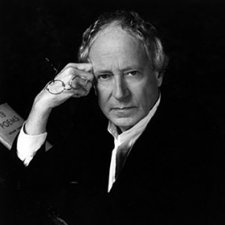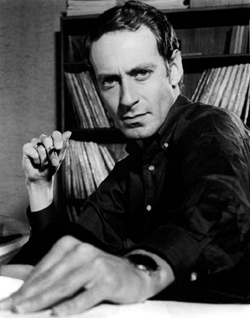 London’s famous British Film Institute (BFI), which runs the National Film Theatre located on the South Bank next to the River Thames, has announced exciting details about its upcoming John Barry season, John Barry: Soundtracking Bond and Beyond.
London’s famous British Film Institute (BFI), which runs the National Film Theatre located on the South Bank next to the River Thames, has announced exciting details about its upcoming John Barry season, John Barry: Soundtracking Bond and Beyond.
The season is devoted to what has been called Barry’s ‘London years’, the period in his career which was mainly devoted to spy films, swinging comedies and social realism. It was a time – as the NFT has put it – which created ‘the distinctive, darkly beautiful John Barry sound’, which lies at the heart of this special season. The season is curated by Bob Stanley.
And there is much to celebrate, especially for 007 fans. Indeed, in his autobiography When the Snow Melts (published in 1998), the Bond producer Albert ‘Cubby’ Broccoli aptly referred to ‘the brilliant John Barry’ and said his soundtracks were ‘some of the best in cinema music’.
More recently, former Bond music composer David Arnold has also paid strong homage to John Barry and his 007 music, and described how listening to the music to You Only Live Twice (1967) was a truly ground-breaking moment, which gave him a burning desire to compose for movies himself.
The BFI will celebrate the film music of the great John Barry (1933-2011) in both February and March. February’s events and screenings will include:
Spies, Swingers and Shadows: The Films and Scores of John Barry: An event on 6th February, where some special guests will discuss the rchly distinctive sounds of Barry and the signifiance of his scores for the Bond franchise and other key films.
Goldfinger: A great opportunity see EON’s third Bond film, including Shirley Bassey’s very powerful theme song, with screenings on 4th and 21st February.
You Only Live Twice: Watch EON’s fifth Bond adventure, including his lush Japanese-style music and Nancy Sinatra’s beautiful theme song, with screenings on 4th and 6th February.
The Ipcress File: A rare chance to view Michael Caine’s first Harry Palmer spy film, with Barry’s brilliant use of the cimbalom, a Hungarian musical instrument, with screenings on 3rd and 10th February.
Other screenings in the Barry season (details are on the NFT site) will include Never Let Go (1960), Four in the Morning (1965), The Whisperers (1967), Petulia (1968), Boom (1968), Deadfall (1968) (which includes an on-screen appearance by John Barry himself), and Midnight Cowboy (1969).
On Saturday, 10th February, there will also be John Barry on TV, with rare TV clips plus two full TV programmes where John Barry discussed his career and the art of film composing.
Further details on the March, 2024, part of the season will be available soon.
The Name’s Barry, John Barry
John Barry, of course, as well as being a brilliant composer of film music on some of the most memorable movies of the 1960s, is also hugely respected for his work on the James Bond movies and arguably had a huge impact on cinema music in general. The Yorkshire-born composer very sadly died in January, 2011, aged just 77, and there were many tributes to his Oscar-winning work from across the movie and music world. It is no exaggeration to say that his work today is so highly regarded that it is regularly placed alongside the compositions of some of the most famous classical composers.
Barry exemplified both the 1960s as a ‘swinging’ decade and the rise of movie soundtracks for a popular mass audience, and he gave the 007 movies a highly distinctive musical identity. There have been many words written about his legacy. But the Oscar-winning composer more than deserves the accolade ‘music maestro’.
Perhaps the last word should go to his close collaborator and good friend Don Black who, after working with him on Thunderball, went on to develop a highly successful music writing partnership with Barry. Writing in the UK’s Daily Mail newspaper in 2012, the Oscar-winning lyricist revealed that, since the death of John Barry had been announced, he (Don Black) had been ‘inundated by emails and texts from his fans around the world’. Black argued in his article that John Barry had ‘revolutionised film music’ – he had ‘a way of connecting emotionally with a story’, an understanding that resulted in the most beautiful and appropriate music. Black continued: ‘Working with John was a joy, because he didn’t present you with a rough idea, but a finished product. You knew by the time you got hold of the music he would have agonised over it, rewritten it and honed it until it was perfect’. Black added: ‘He may have gone, but the gift of his music will be with us for decades to come’.
As the BFI’s Barry season will more than demonstrate, never a truer word was said.
Did You Know?
As many 007 fans are fully aware, David Arnold is one of John Barry’s biggest fans. Arnold’s Bond music tribute album, Shaken and Stirred: The David Arnold James Bond Project, released to wide critical acclaim in 1997, included, among a number of classic 007 songs, a version of the main theme to Thunderball sung by Martin Fry. The EON producers Barbara Broccoli and Michael G. Wilson were so impressed with the Bond tribute album that they invited Arnold to score Tomorrow Never Dies (1997). Interviewed in 2009, the composer said of his Bond tribute album and EON: ‘I think it indicated to them that there was a way of keeping what was good about the old stuff and making it contemporary’.

Bond composer John Barry in the 1960s
